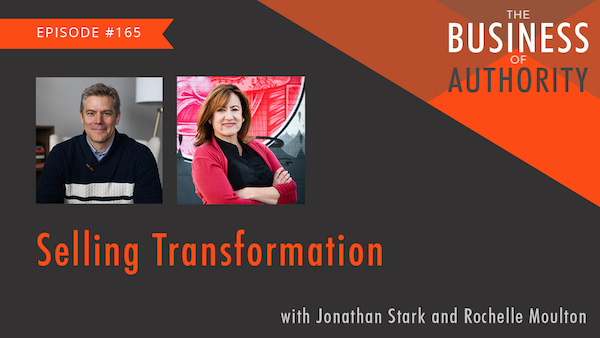Selling Transformation
- February 2, 2021
- Posted by: Rochelle
- Category: Marketing + Selling, Podcast

At some point in our career arc as consultants and service providers, we tend to focus more on delivering transformations and less on performing execution-style tasks.
But selling client transformations—the outcomes of our work vs. the inputs—is a different beast. Which is why Jonathan and I tackled the subject this week:
Why getting to selling transformations is a process and the multiple ways to move yourself further along the curve.
The elements of selling transformation—from positioning the outcomes you deliver, understanding your client’s definition of a home run and ensuring their buy-in to the process.
Moving from being a master of your craft to fostering transformational outcomes in your ideal client base (including mustering up the courage to make the shift).
Mapping what satisfies your clients to what satisfies you—and vice versa.
Building transformations into your business model—how you work, what you deliver and how you get paid.
Quotables
“When you get to the phase where you’re focusing on transformations, not coincidentally you’re also to the point where you can start value pricing for projects.”—JS
“It’s really tough to get to transformations if the client is telling you what to do.”—RM
“It’s a mindset shift…where all of a sudden you start to notice what’s happening in the other people involved and you aren’t just thinking ok, here’s my punch list of to-do’s for today.”—JS
“We think ‘I’m gonna sell you on how smart I am’ but really what we’re selling is the transformation of the client—the outcome.”—RM
“Saying ‘here are all the answers, see ya later, bye’ doesn’t work.”—JS
“You start to say oh—so I did that, I did this great thing but that client put it on a shelf. But this client used it and then told me how great it was. What’s the difference between those two?”—RM
“It’s more likely you’ll produce raving fans if you know what the outcome is that they’re looking for.”—JS
“Helping a client think through all the strategic “stuff”—the picture of where they’re going and the why plus all the outcomes—is a gift you give the client. Even if they don’t hire you.”—RM






